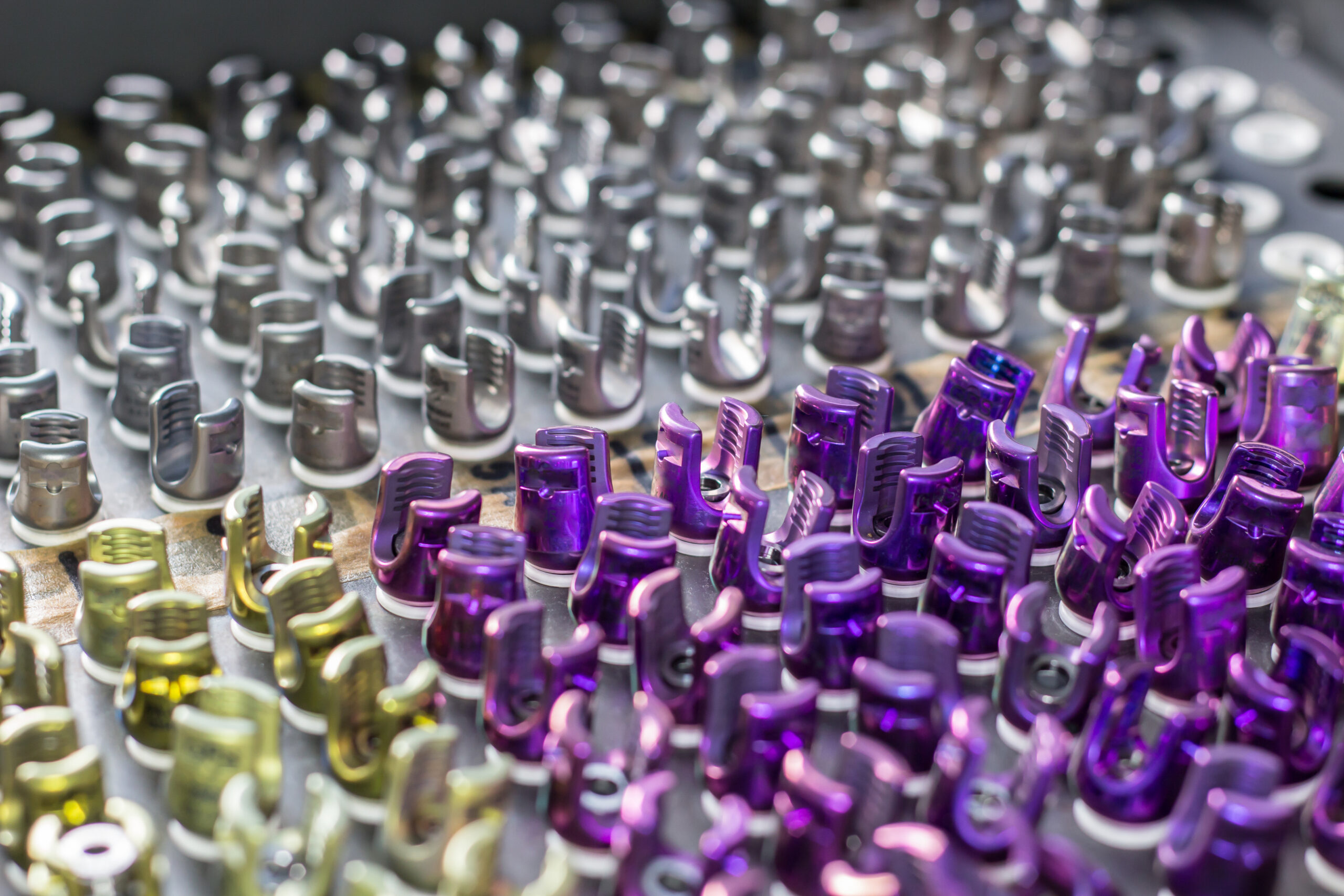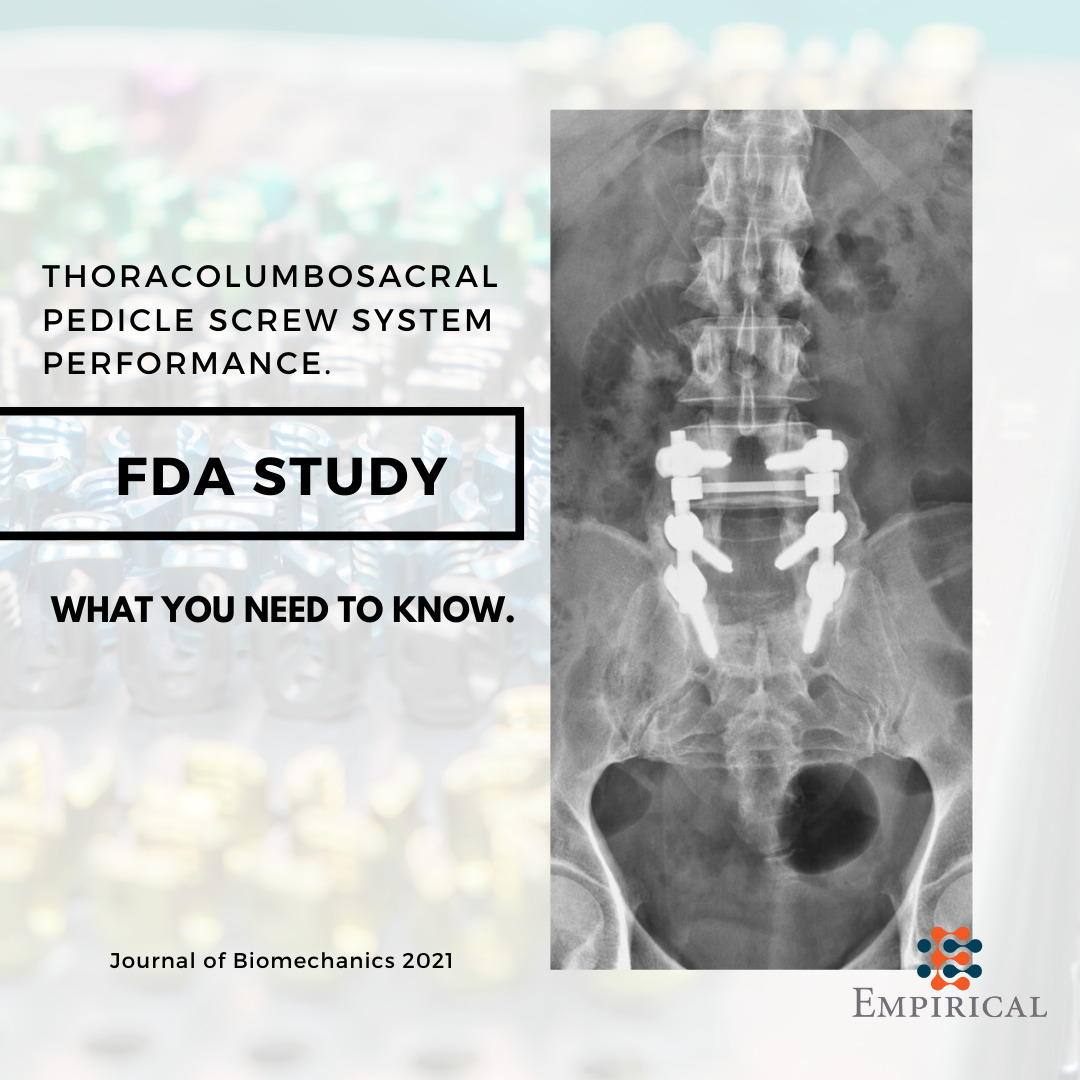In a recent article presented in the Journal of Biomechanics, “Mechanical performance of thoracolumbosacral pedicle screw systems: An analysis of data submitted to the Food and Drug Administration,” members of the FDA’s Office of Orthopedic Devices and Office of Applied Mechanics presented anonymized data found in 200 pedicle screw system 510(k) submissions to the FDA from 2007 to 2018.
The summary of performance data shared will make evaluating device performance and presenting data for FDA clearance clearer for future TPSS submission. The article discusses results from commonly used ASTM F1717 testing modes: Static and Dynamic Axial Compress, and Static Torsion. It also includes additional data analysis for ASTM F1798 and portions of ASTM F543. This information alleviates the burden on companies trying to illegally acquire predicate devices for side-by-side mechanical testing to prove substantial equivalence of the subject device.

While the article provide clarity for acceptance criteria, it presents a murkier view of expected testing that is needed for a traditional 510(k) submission for a pedicle screw system. The article presents testing standards beyond the ASTM F1717 testing found in the FDA guidance document for pedicle screw system submission, “Guidance for Industry and FDA Staff: Spinal System 510(k)s.” It is unclear at this time if updates will be made to the FDA guidance document to include direction and applicable use of the additional data included in the article.
Additional testing data was discussed for the following:
- Axial gripping capacity per ASTM F1798
- Torsional gripping capacity per ASTM F1798
- Static flexion-extension per ASTM F1798
- Dynamic flexion-extension per ASTM F1798
- Tulip-shank dissociation — neutral angle per ASTM F1798
- Tulip-shank dissociation — max angle per ASTM F1798
- Screw pullout testing per ASTM F543
To read the full article click on the following link:

